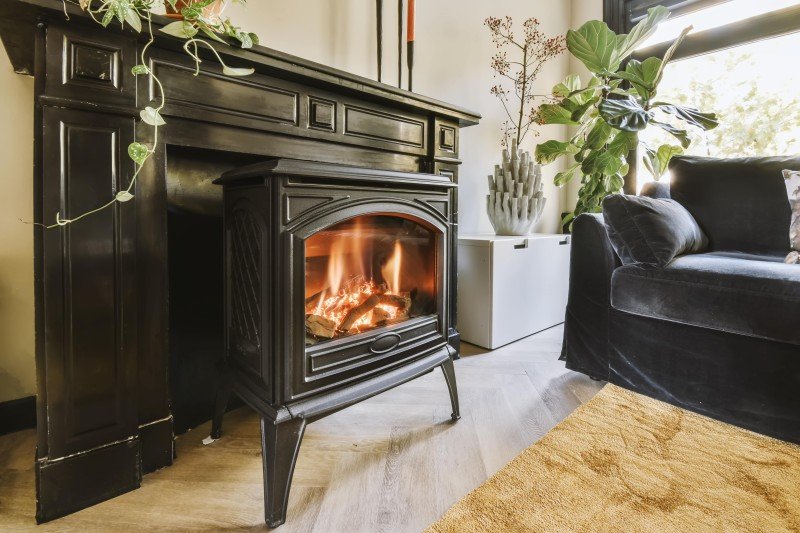Multi Fuel Stoves for Sale: A Comprehensive Guide
Multi fuel stoves have acquired increasing appeal over the years due to their flexibility, efficiency, and aesthetic appeal. These stoves can burn various types of fuel, such as wood, coal, and biomass, allowing house owners to pick the most cost-efficient and environmentally-friendly alternative based on their requirements. This article aims to provide a thorough introduction of multi fuel stoves, their advantages, considerations for purchasing, various types available, and answers to regularly asked questions.
The Benefits of Multi Fuel Stoves
Multi fuel stoves offer a range of advantages for property owners seeking to enhance their heating options. A few of the essential benefits include:
- Versatility: The ability to use different fuels allows house owners to adjust to altering scenarios, such as fluctuating fuel rates or availability.
- Cost-effectiveness: Depending on regional fuel rates, users might find cost savings by burning less expensive fuels like wood or coal.
- Ecological Impact: Many multi fuel stoves emit lower emissions than traditional heater, especially when using sustainably sourced biomass.
- Aesthetic Appeal: Multi fuel stoves add a touch of warmth and beauty to any living space, producing a comfortable atmosphere.
- Efficiency: Modern multi fuel stoves are created to make the most of combustion and heat output, offering an efficient heating option for homes.
Types of Multi Fuel Stoves
When considering a multi fuel range, it's vital to understand the different types readily available on the market. Below are some common categories:
| Type | Description | Common Fuel Sources |
|---|---|---|
| Wood Burning Stoves | Specifically developed for burning wood logs and pellets. | Logs, wood pellets |
| Coal Stoves | Stoves enhanced for burning coal, supplying high heat output. | Anthracite, bituminous coal |
| Pellet Stoves | Use compressed pellets made from wood or biomass, efficient burning. | Wood pellets, biomass pellets |
| Mix Stoves | Efficient in burning both wood and coal, providing versatility. | Wood, coal |
| Biofuel Stoves | Designed to burn liquid biofuels, promoting sustainability. | Bioethanol, biodiesel |
Considerations for Purchasing a Multi Fuel Stove
Before buying a multi fuel range, there are numerous aspects to take into consideration to ensure the selected design meets heating requirements and choices. Here are some important considerations:
- Size and Capacity: Evaluate the heating requirements for the area and select a range with the suitable output. This is generally determined in kilowatts (kW).
- Efficiency Ratings: Look for stoves with high efficiency ratings, which symbolizes much better fuel utilization and lowered emissions.
- Material and Build Quality: Opt for stoves made from resilient products such as cast iron or high-grade steel that can endure high temperature levels.
- Price: The spending plan plays a substantial function in decision-making. Think about both the in advance cost and continuous fuel expenses.
- Installation: Some models may require expert setup or particular flue systems. Examine regional guidelines and codes for compliance.
- Aesthetics: Consider the style and surface to guarantee it matches your home decoration.
Frequently Asked Questions About Multi Fuel Stoves
1. Can I use any type of fuel in a multi fuel stove?
Multi fuel stoves are created to utilize specific types of fuels. Constantly describe Cozy Fireplaces to understand which fuels work.
2. How do I keep my multi fuel range?
Routine upkeep includes cleaning up the flue pipeline, examining for clogs, and examining seals and gaskets. Following the producer's maintenance schedule is vital for safety and efficiency.
3. Are multi fuel stoves safe to use?
Yes, when appropriately installed and preserved, multi fuel stoves can be a safe heating choice. It is important to follow security regulations and standards for installation.
4. Do I require a chimney for a multi fuel stove?
Yes, the majority of multi fuel stoves require a chimney or flue system to vent smoke and gases outside the home. Make sure that the system is set up according to local building regulations.
5. What is the average lifespan of a multi fuel range?
With appropriate maintenance, a well-built multi fuel stove can last anywhere from 15 to 25 years, depending on usage and care.
Multi fuel stoves use a flexible and efficient heating service for property owners, enabling them to pick their favored fuel type based on expense and availability. By considering the different kinds of stoves, their benefits, and factors to think about when purchasing, individuals can make educated decisions that will boost their home's comfort. With a large range of alternatives readily available, potential purchasers must do thorough research study, taking into account the stove's efficiency, fuel compatibility, and overall style to find the very best suitable for their needs.
In conclusion, while multi fuel stoves can look like a huge investment, their adaptability and efficiency make them a worthwhile addition to any home. Whether it's for extra heating or as the primary source of heat, a multi fuel stove supplies a practical solution for the modern property owner wanting to stabilize comfort with sustainability.

